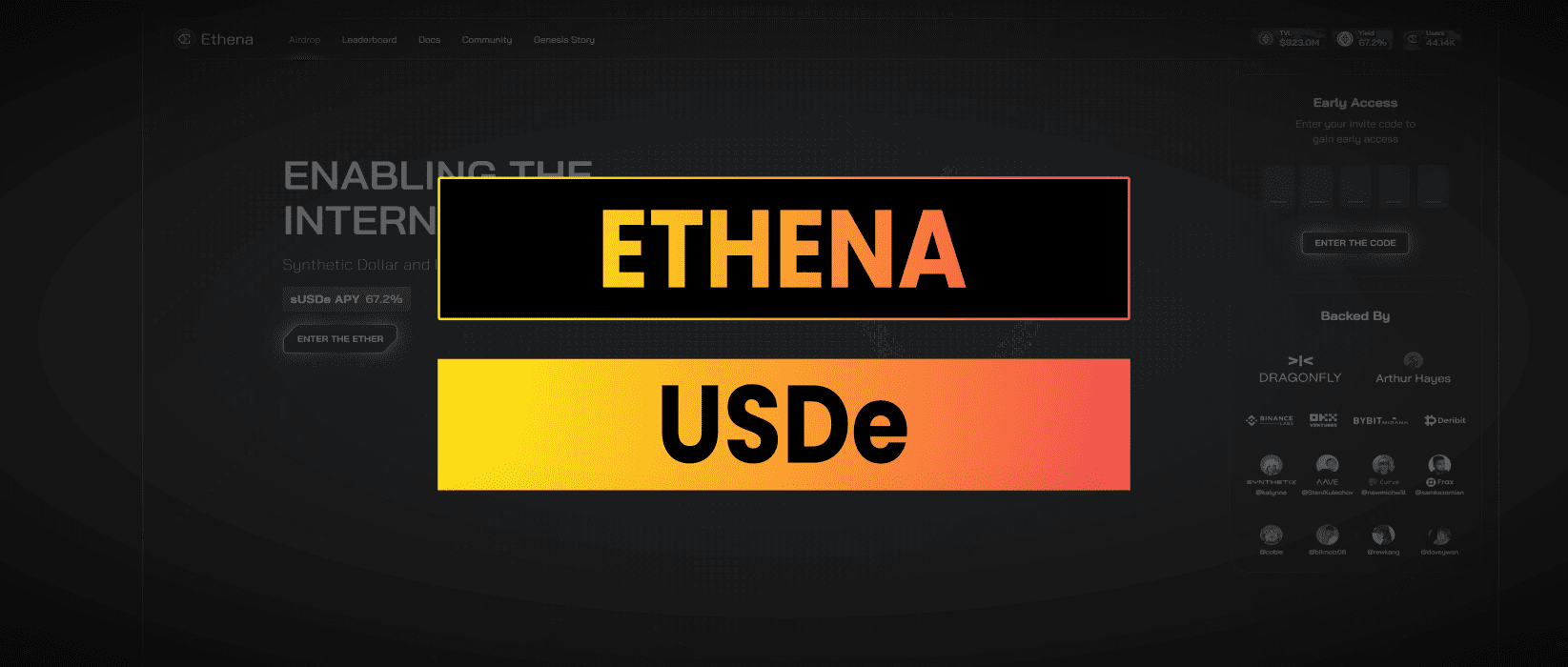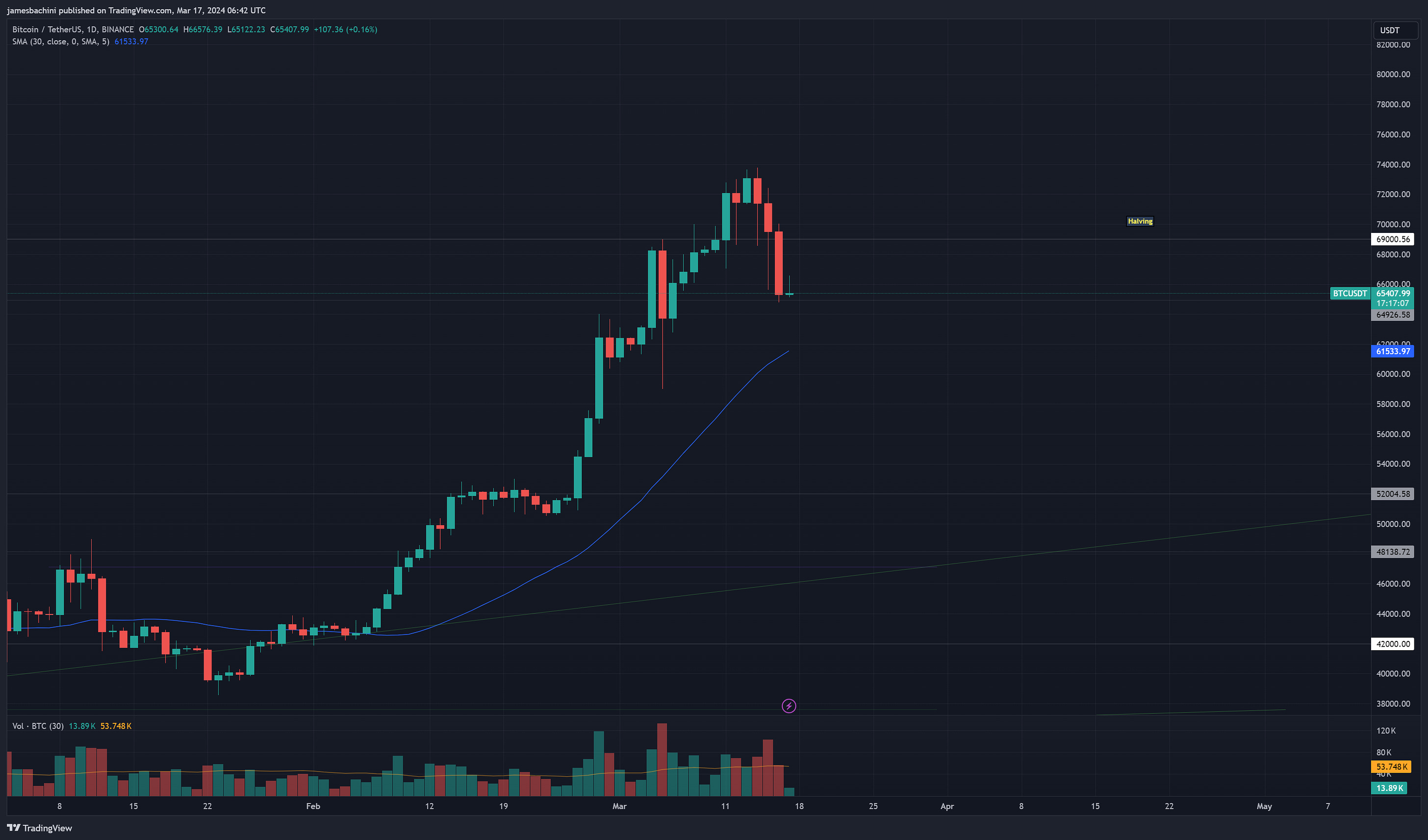At this point it’s fair to say that the Bitcoin ETF has found some product market fit. Money continues to pour in from hedge funds, prop traders, institutions and family offices around the world. The Ethereum ETF decision is due in May 2023 with many expecting further delays. Regardless of when it goes through will it have the same demand as the Bitcoin ETF? Perhaps not. Bitcoin is a household name. You can ask anyone on Wall Street from a secretary to a CEO and they’ll know what Bitcoin is (they’ll also know what an ETF is and how it can be used to gain exposure to an asset) Ethereum doesn’t have the same brand recognition and I wouldn’t expect 10% of that demographic to have heard of it, let alone know what it is. Ethereum’s narrative as a world computer is still to play out and it hasn’t captured mainstream attention yet. It’s still a niche product within an obscure geeky ecosystem of developers and nerds ❤️. The fact that everyone knows what Bitcoin is makes it more palatable as an asset class. Pitching to a board for an allocation is a lot easier (and less career risk) when they’ve all been reading about it in the Wall St Journal. Pitching Ethereum to the same group is a harder sell because it’s more complex and a relatively unknown value proposition. The distinction in fundamental utility between Bitcoin and Ethereum cannot be overstated. While Bitcoin is a pure cryptocurrency, a digital gold and store of value, Ethereum's appeal lies in its technological capabilities and potential for decentralized applications. A shared global computer for storing and processing data with far reaching potential for disruption. This difference in perception is rarely understood by people working in the blockchain industry. Ethereum on Wall Street will be an “altcoin” for some time. Long-term Bitcoin with its more straightforward value proposition should appeal to investors looking for a digital equivalent of gold. I discussed in a previous newsletter how it could become a flight to safety asset one day far in the future. Ethereum's potential is tied to the development and success of web3 and decentralized computing, which is a more nuanced and tech-stock-esque value proposition.
Bitcoin attracts a broader range of investors, including those who might be less tech-savvy but are looking for exposure to risk assets. Ethereum's current investor base consists more of those with a deeper interest in blockchain technology and its applications. The Ethereum ETF, when it does launch, may initially appeal more to a niche segment of the market, particularly funds like Ark Invest who are focused on emerging technologies. As Bitcoin evolved from an obscure cryptocurrency to a widely recognized asset class, Ethereum will follow it’s own trajectory. The ETF approval is a step forwards but it might not attract the same initial volume of capital inflows that we are currently seeing on the Bitcoin ETF’s. The bounce off previous all time high back down to $59k was a spectacle for anyone that wasn’t 10x leveraged long. Market dynamics are different this time, perhaps they always are, but we are seeing less spikes into liquidity like this on a day to day basis. Saylor has added to the spot bid which is throwing fuel on the fire of the ETF demand. The last few days we’ve seen a healthy but significant pull back. TradFi markets open back up tomorrow and the spot bid will return with the NYSE open. The Bitcoin halving around the 20th April 2024 is the next big event and cutting supply in half during this period of ETF inflows is a unique dynamic with no past historical events to model. Social links are below and if you enjoyed this newsletter I would appreciate it if you could share this content |
.
Copyright © 2015 : All.Semua












0 Komentar untuk "Crypto ETF Demand Zones"